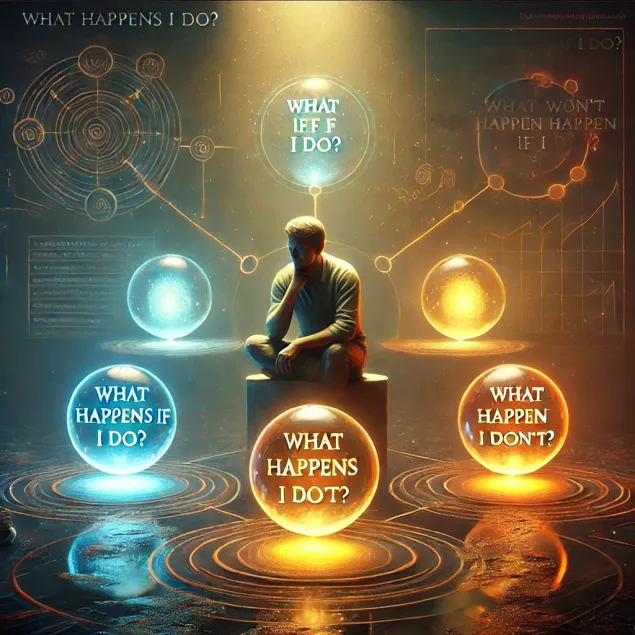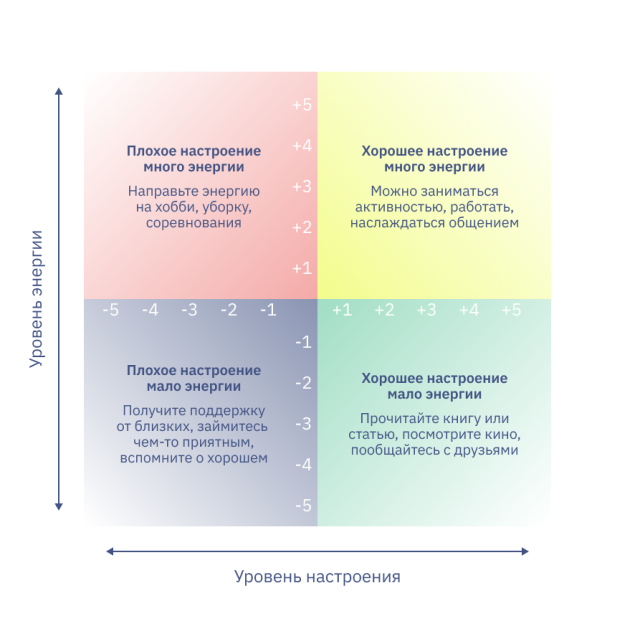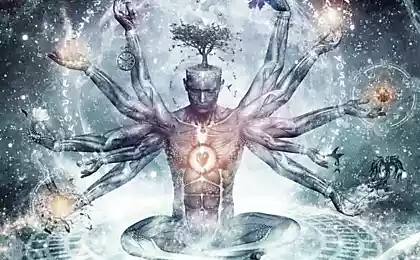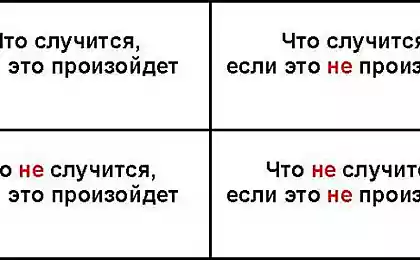219
How to live negative emotions, so as not to drain energy on them: Descartes’ method

Introduction. Negative emotions—whether anger, resentment, fear, or anxiety—are often perceived as unwanted “guests” that we want to get rid of. We tend to suppress them, accept them, or push them out, but excessive avoidance can lead to even greater problems: accumulated stress, internal conflicts, and loss of mental strength. In fact, psychology has long been talking about the need to “live” such emotions without expending too much energy to fight them. But how do you do that effectively? One of the interesting and effective tools is the so-called “Descartes method”, based on the idea of rational and emotional analysis, which can be carried out independently without much preparation.
In this article, we will look at what is at the heart of Descartes’ method, how it helps to interact with negative experiences and why this practice can “save” us a lot of mental resources. We will not attach ourselves to specific dates or events in order to keep the material evergreen, but we will rely on modern knowledge of neuropsychology and practical psychotherapy. We will reveal how the “Four Descartes Questions” can be adapted not only to decision-making, but also to dealing with emotional states. Ready to immerse yourself in a rational yet deeply personal approach to your feelings? Let's go!
What is the "Descartes method" in the classic version
Most people have heard of the “Four Descartes Questions” in the context of decision-making. In fact, the French philosopher Rene Descartes (1596–1650) did not formulate the method this way; this practice emerged later, inspired by his rational ideas. The main idea: before choosing, it is recommended to ask yourself four questions: “What will happen if this happens?”, “What will happen if this does not happen?”, “What will not happen if this happens?”, “What will not happen if this does not happen?”.
Thus, we analyze the options and their consequences from different angles, not limited to superficial pros and cons. In the classical sense, this helps to see the bigger picture and reveal the ulterior motives or fears associated with the decision. However, psychologists and coaches have recently begun to take a similar approach to emotional states, particularly negative emotions. After all, emotions also represent a “kind of choice”: we are free to continue to “dive” into anger or resentment or look for ways to consciously study them.
Why apply the Descartes method to emotions
When we experience negative feelings, we often lose our rational ground. Resentment may seem so “righteous” that we don’t notice the destructive effects it has on ourselves. Anger can fuel external irritation, and anxiety requires energy that we can use to solve real problems. As a result, instead of a short-term “drilling”, we get protracted states where energy is “merged”.
The Descartes method, adapted to emotions, allows you to structure the internal dialogue. Do not suppress the emotion and not break into its “storm”, but ask yourself questions that rationalize the experience. As a result, we do not waste power, but “highlight” the roots of the emotion and translate it from a destructive form into a resource for action.
How to Do the Descartes Method to Work with Negative Emotions
Let’s say you feel intense anger, resentment, or fear, and you don’t just want to deal with them, but to understand and neutralize them in a constructive way. Try the following algorithm based on the classic four-question structure:
1. What happens if I accept this emotion?
The essence of the question is to understand how your life will change if you consciously allow yourself anger / resentment / anxiety, without trying to suppress it. You may realize that an emotion signals an unmet need, or that it indicates a violation of boundaries in a relationship. Allowing yourself to “live” it gives you a chance not to ignore an important internal conflict.
- Example: “I will take offense at the boss. What's that gonna do? To see my worth not being considered? To understand that I overestimated our friendship?
2. What happens if I don’t accept this emotion?
Now think about what suppression will do. Perhaps on the surface you will remain “calm”, but inside the anger will “smolder”, causing intense dreams, hidden aggression or health problems. Usually, the rejection of an emotion leads to the fact that it finds its way out in a more destructive form.
- Fact: Studies (APA) show that chronic suppression of negative feelings is correlated with increased anxiety and psychosomatics.

3. What will happen if I accept this emotion?
This is a more subtle question: if you choose the path of conscious living, then you will not experience the “artificial calm” that comes with self-deception. You may have to face a series of unpleasant conversations or experience a moment of vulnerability. But you will not expend energy on “masking”, and the tension inside will disappear.
- Example: If I admit that I am angry with a friend, I will lose the illusion that everything is perfect and have to openly discuss the conflict.
4. What won’t happen if I don’t accept this emotion?
In Descartes’ classical method, this question is intended to reveal the “side effects” of failure to act. In our case, the refusal to recognize a negative feeling. Think about what you will not get if you continue to suppress or ignore the internal storm. Perhaps you will never resolve a deep conflict with a loved one, and remain in the role of “victim”. Or do you not realize that your anxiety is related to the accumulated stress at work, where it is time to change something.
- Conclusion: People often fear that emotions will destroy their social contacts. But an unlived emotion can destroy inner harmony, which is even more dangerous.
Advantages of this approach
The Descartes method, applied to the emotional sphere, gives several important advantages:
- Structure of feelings: You don’t just tell yourself “I’m angry” or “I’m hurt,” but you turn your emotional response into context: “what will happen,” “what won’t happen,” etc. This gives the emotions a clear form, making it easier to understand.
- Reduced impulsive reactions: When we look closely at the consequences, we have time and reason to move from a hot response to a more conscious one.
- Focus on the solution, not the problem: Identifying the root causes and options for the development of events, a person rather moves to search for a way out than getting stuck in a negative state.
- Flexibility: This method is easily adapted to both personal introspection and work with a psychologist. It can also be used to analyze doubts, anxieties, even joy and big decisions.

Why is it important to “live” rather than “get rid of” emotions?
We often say, “We need to get rid of anger” or “I am tired of my resentments, I want to remove them.” However, psychologists insist that any emotion is part of our mental ecosystem, signaling something important (breaking boundaries, dissatisfaction with the situation, fear). When we say “get rid of” we are missing the lesson and pushing the emotion deeper. This can lead to repeated flare-ups in a more severe form or to toxic passive aggression.
“Accommodation” implies the reception: “I notice that I am angry (or afraid or offended). I am aware of this emotion without trying to suppress it immediately. I'm analyzing what she's telling me. Then I decide what to do about it.” This is the key to not draining energy into pointless wars with yourself. In support of this, the American Psychological Association cites statistics that “regulation of emotions” (rather than suppression) has positive effects on mental health and reduces the risk of depression.
Additional recommendations for the integration of the Descartes Method
Here are some more steps that will help you implement this practice more successfully:
- Keep a diary of emotions: Write down when and under what circumstances you have a negative emotion. Apply the “four questions” to each situation.
- Enlist the support of a friend or coach: Sometimes, interacting with another person helps you get deeper into the answer to these questions.
- Regularity is more important than intensity: It is better to devote 5-10 minutes to such an analysis every day than to occasionally spend a couple of hours, “diving with your head.”
- Don't forget to breathe consciously. A couple of simple breathing exercises can help calm the body before you go into introspection.

Conclusion
Negative emotions are not so “negative” if you take them as signals to explore your own psyche. Descartes’ method, known to many for making decisions in the logic of pro-cons, is surprisingly effective in dealing with emotions. It gives you structure, and structure is what is often lacking when you are overwhelmed by anger, resentment, or fear.
Realizing what will happen if you accept the emotion, or vice versa, continue to suppress it, you take control. Instead of draining energy into endless internal conflicts, you use that energy to transform and understand yourself on a deeper level. This kind of “emotional literacy” is necessary for anyone who seeks peace and harmony without sacrificing the ability to feel the fullness of life.
Try the 16 Associations (if you read our previous article) or other psychological techniques, but be sure to add the Descartes Method for emotional states. You will be surprised at how obvious the roots of your anxieties, resentments and fears will become. And, most importantly, it is possible to deal with them not through suppression, but through a meaningful transformation that brings more strength, clarity and calm.
The 16 Associations Exercise by Carl Jung
Mark Zuckerberg: 10 principles of success in the life and business of the head of Facebook























